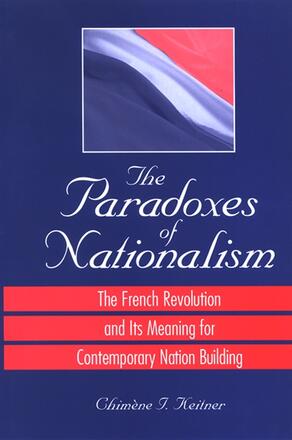
The Paradoxes of Nationalism
The French Revolution and Its Meaning for Contemporary Nation Building
Alternative formats available from:
An interdisciplinary study of nationalism drawing on the events of the French Revolution.
Description
The Paradoxes of Nationalism explores a critical stage in the development of the principle of national self-determination: the years of the French Revolution, during which the idea of the nation was fused with that of self-government. While scholars and historians routinely cite the French Revolution as the origin of nationalism, they often fail to examine the implications of this connection. Chimène I. Keitner corrects this omission by drawing on history and political theory to deepen our understanding of the historical and normative underpinnings of national self-determination as a basis for international political order. Based on this analysis, Keitner constructs a framework for evaluating nation-based claims in contemporary world politics and identifies persistent theoretical and practical tensions that must be taken into account in contemplating proposals for "civic nationalism" and alternative, nonnational models.
Chimène I. Keitner is an independent scholar who holds a PhD in International Relations from Oxford University.
Reviews
"…historians will welcome Keitner's sustained analysis of the idea of the nation and be gratified to read a compelling case for the continued relevance of a much-debated historical subject." — Law and History Review
"Keitner expertly blends narrative prose with pertinent (and bilingual) primary sources." — NYU Journal of International Law and Politics
"…the core of her account proves clarifying and instructive." — CHOICE
"Keitner has produced an interesting work, and shown much historical knowledge and a gift for conceptual analysis." — Stanley Hoffmann, author of Gulliver Unbound: America's Imperial Temptation and the War in Iraq
"This book is a good example of the use of history to illuminate issues in political theory, and of the contribution that a theoretical perspective can make to the understanding of history." — Jeremy D. Popkin, author of Revolutionary News: The Press in France, 1789–1799